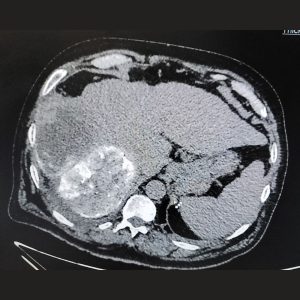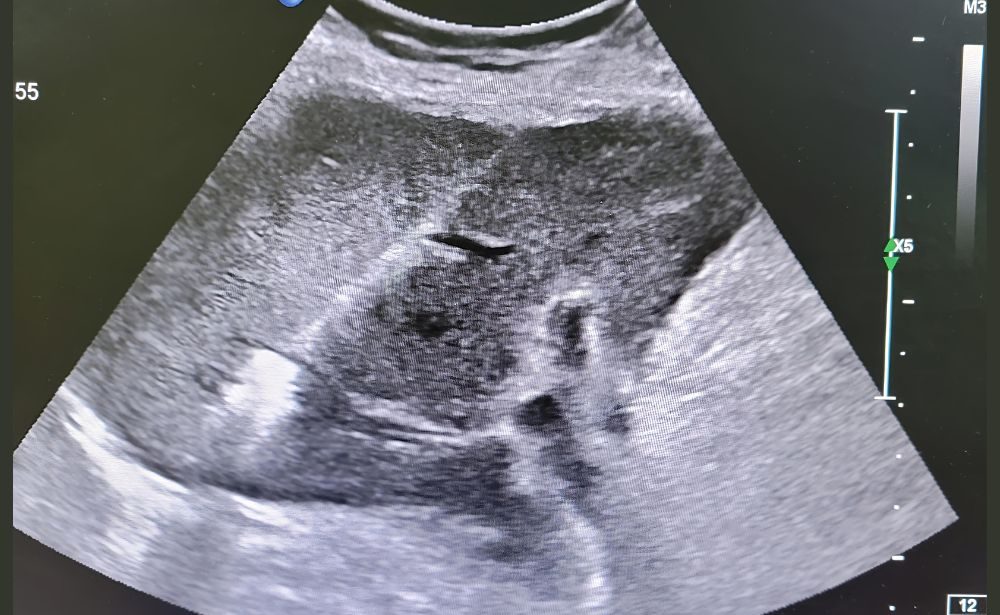Fighting Cancer with Pinpoint Precision
Deliver powerful, targeted treatments directly to tumors—preserving healthy tissue and offering a faster path to recovery.
A Powerful, Minimally Invasive Approach to Cancer Care
When facing a cancer diagnosis, you deserve a comprehensive team and the full spectrum of modern treatment options. Interventional Oncology represents a revolutionary pillar of cancer care, offering powerful, image-guided therapies that attack tumors from within. Dr. Akash Bansal specializes in these minimally invasive techniques, which can be used to treat primary and metastatic cancers, often when surgery is not an option. Our goal is to provide effective tumor control with minimal impact on your body, helping you maintain your quality of life during your fight.
Our Advanced Interventional Oncology Solutions
1. Trans-arterial Chemoembolization (TACE)
The Problem: Liver cancer (Hepatocellular Carcinoma) or liver metastases that cannot be treated with surgery or ablation.
Our Solution: We navigate a microcatheter directly into the arteries feeding the liver tumor. A high dose of chemotherapy is then injected, followed by tiny particles that block the blood supply, trapping the drugs and starving the tumor.
Patient Benefit: Delivers a high concentration of chemotherapy directly to the tumor while minimizing systemic side effects. It is a life-prolonging and potentially curative treatment for liver cancer.
2. Trans-arterial Radioembolization (TARE)
The Problem: Inoperable primary or metastatic liver tumors that require a different mode of attack.
Our Solution: Millions of microscopic radioactive beads (Yttrium-90) are delivered through a catheter directly into the tumor’s blood supply. These beads lodge in the tumor vessels, delivering a powerful, localized dose of radiation from the inside out.
Patient Benefit: An outpatient or short-stay procedure that provides highly effective internal radiation therapy with extreme precision, sparing healthy liver tissue.
3. Tumor Ablation (Radiofrequency/Microwave)
The Problem: Small to medium-sized tumors in the liver, kidney, lung, or bone that need to be destroyed.
Our Solution: Under precise CT or Ultrasound guidance, a thin probe is inserted directly into the tumor. The tip then emits either radiofrequency (heat) or microwave energy, completely destroying the cancerous cells in a controlled zone.
Patient Benefit: A true scarless “surgery” that eradicates tumors without an incision. It preserves maximum healthy organ function and is often a curative option for early-stage cancers.


Why Choose Interventional Oncology?
Organ Preservation: Our treatments are designed to destroy the tumor while sparing the surrounding healthy organ, which is critical for organs like the liver and kidneys.
Minimally Invasive Approach: All procedures are performed through a tiny needle puncture, leading to less pain, no surgical scars, and a dramatically faster recovery than open surgery.
A Bridge to More Options: Often, these therapies can successfully shrink a tumor, making it operable or allowing other systemic treatments to work more effectively.
Palliative Care: For advanced cancers, these procedures can effectively reduce tumor size to alleviate pain and other debilitating symptoms, significantly improving quality of life.
Frequently asked questions
External beam radiation delivers radiation through the skin from outside the body. TARE delivers radiation from inside the tumor itself, allowing for a much higher, more concentrated dose with far less damage to surrounding healthy tissues.
For carefully selected patients with early-stage tumors (e.g., small liver or kidney cancers), ablation can be a potentially curative treatment, with success rates comparable to surgery for tumors under a certain size.
Side effects are generally minimal compared to systemic chemotherapy. After TACE or TARE, some patients may experience a temporary “post-embolization syndrome” (mild fever, fatigue, nausea), which is manageable. Ablation may cause mild discomfort at the probe insertion site.
Absolutely. Interventional Oncology works best as part of a multidisciplinary team. These procedures are often combined with immunotherapy, targeted therapy, or traditional chemotherapy for a synergistic, multi-pronged attack on cancer.
Patients with solid tumors in accessible locations (especially liver, kidney, lung) are potential candidates. The decision is based on tumor size, location, number, and your overall health. Dr. Bansal will review your case to determine the best approach.


